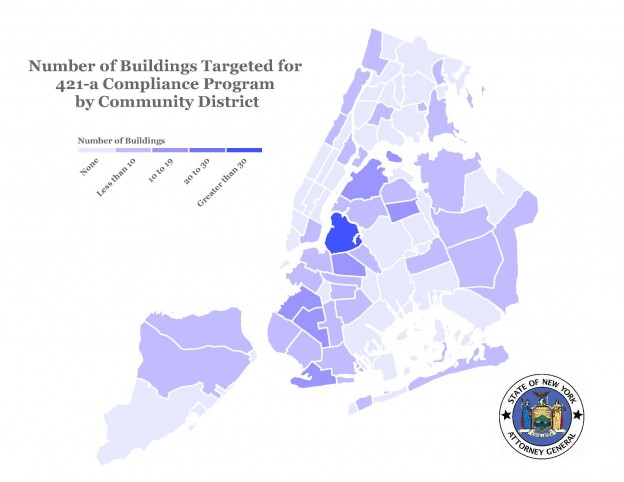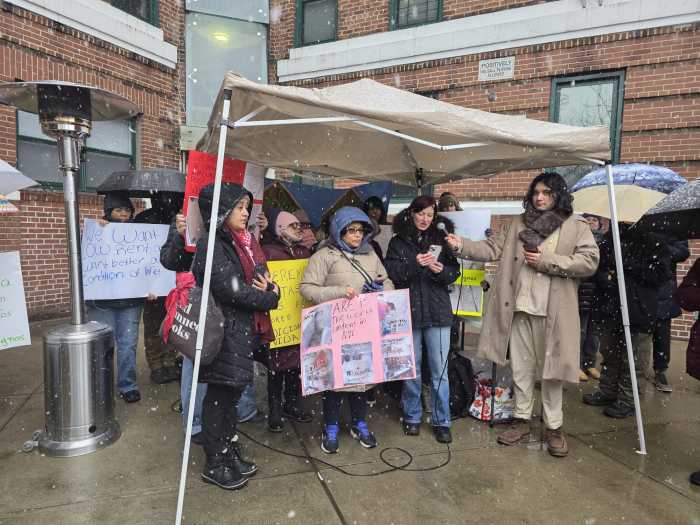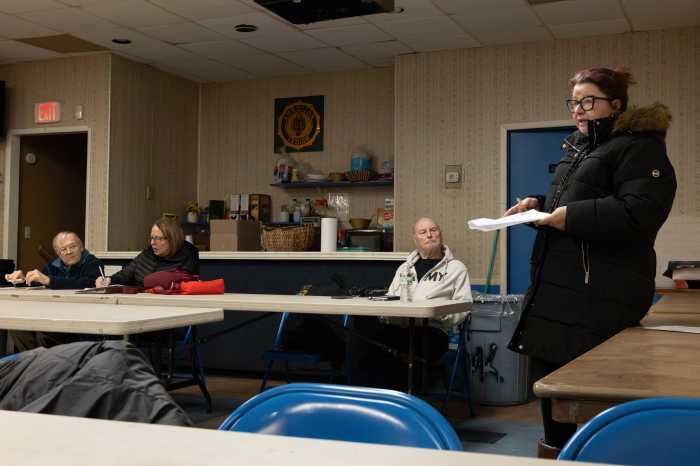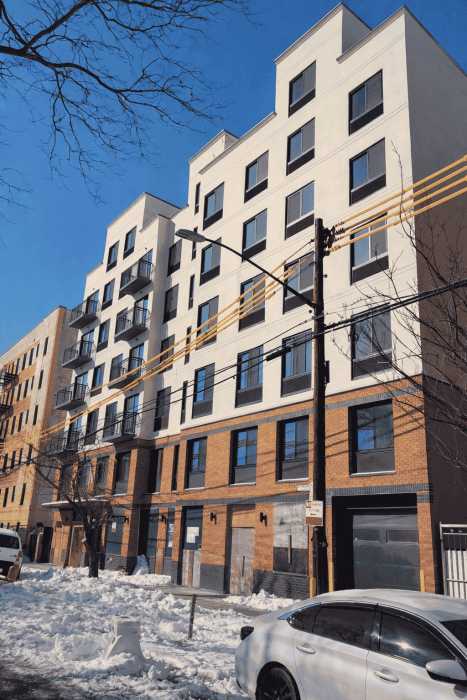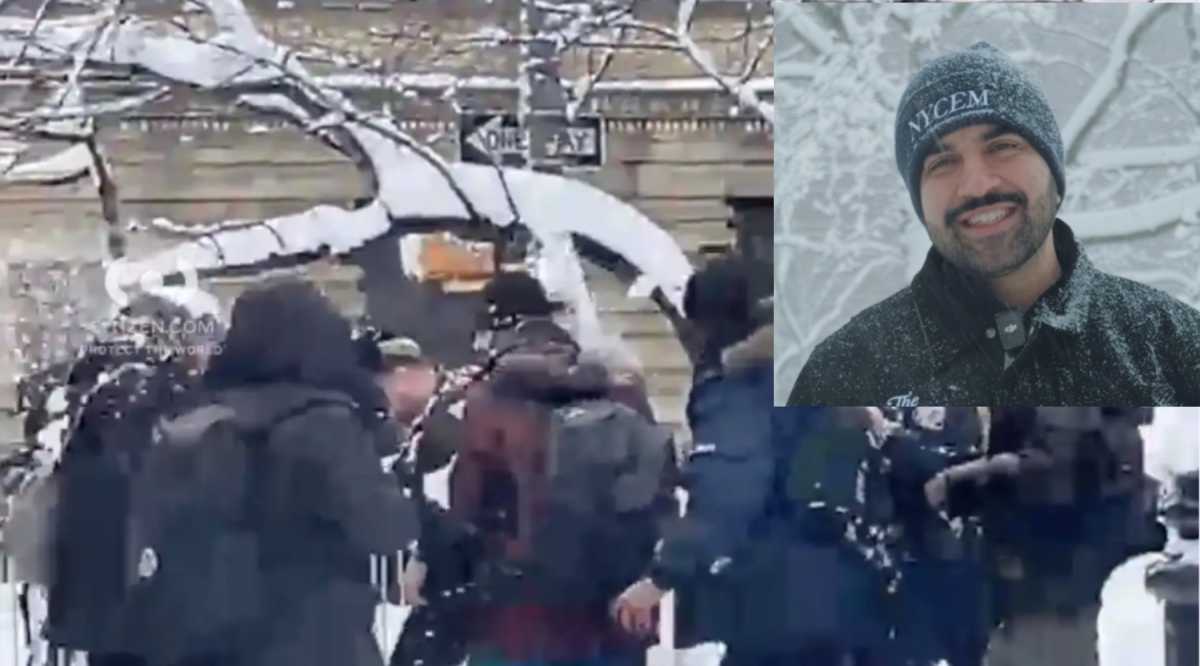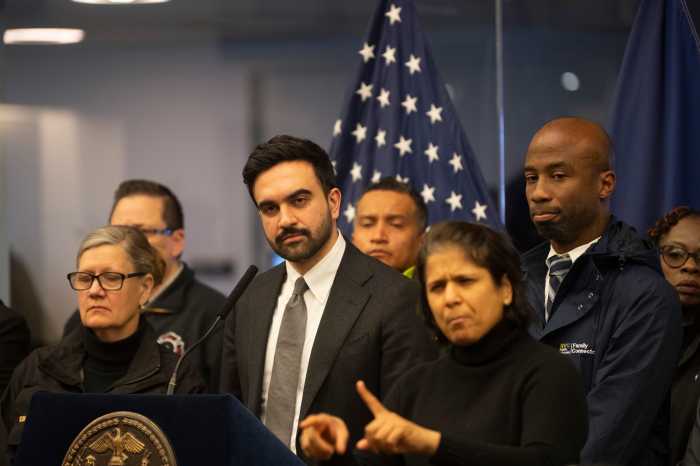A group of state and city officials are getting together to crack down on landlords throughout the five boroughs — including a handful in western Queens — who they say could be breaking the law.
State Attorney General Eric T. Schneiderman, Gov. Andrew Cuomo and the city’s Department of Housing Preservation & Development Commissioner Vicki Been announced Wednesday that notices were sent out to 194 building owners throughout the city who accepted “lucrative” tax breaks under the state’s 421-a program without complying with the law’s rent regulation requirements by registering their apartments as rent-regulated.
The state passed Section 421-a of the Real Property Tax Law in 1971 as a way to motivate the construction of rent-regulated housing and condominiums in New York City. The law gives a partial exemption from city property taxes for the owners of these newly constructed residential multi-family buildings for at least 10 years.
The owners of these buildings, found throughout the five boroughs and most of whom own one building of less than 50 units, provide housing to more than 2,400 families and individuals who are entitled to rent-regulated leases under the law.
A high concentration of these buildings are found in Brooklyn and Queens, with neighborhoods that include Astoria, Long Island City, Corona and Elmhurst.
“Landlords of rental buildings who accept these tax incentives must follow through on their end of the bargain and offer rent-regulated leases to their tenants,” Schneiderman said. “The Real Estate Tax Compliance Program we are announcing today will safeguard tenants’ rights, protect more than 2,000 units of New York City’s rent-regulated housing stock, and ensure that our important and limited tax dollars are properly spent.”
The notices, which were sent out Tuesday, alert building owners to the possible legal consequences they face, including revocation of the tax breaks, if they do not register the apartments as rent-regulated and give tenants rent-regulated leases.
In the letter, the owners are also given details on the one-time, non-negotiable chance they have to “cure the violations” and “avoid further enforcement action.”
The governor’s Tenant Protection Unit (TPU) will monitor the registrations filed by the owners. If the owner fails to register properly, TPU could then look into putting an administrative order freezing current rents, along with pursuing overcharge actions against the owners for collecting improper rents. TPU will also seek damages on behalf of tenants.
“We will not tolerate landlords who break the law and deny their tenants rent-regulated leases, plain and simple,” Cuomo said. “This partnership will help ensure that building owners who benefit from the 421-a program are living up to their responsibilities. Owners who are not currently in compliance should get their act together immediately or face the real possibility of having the TPU freeze rents, pursue overcharges and seek damages.”

